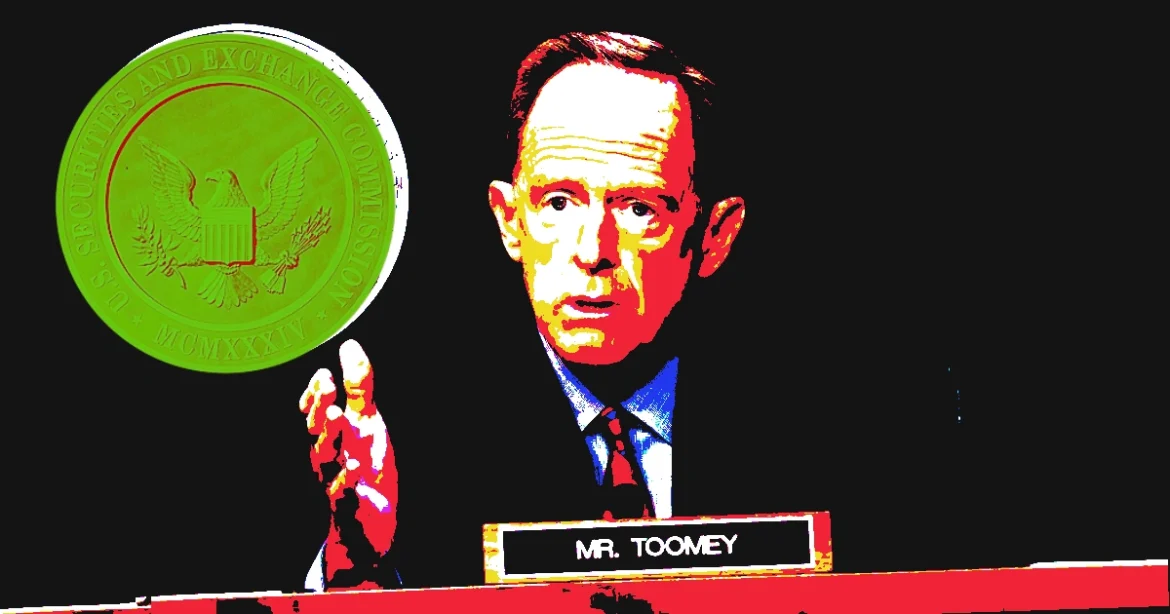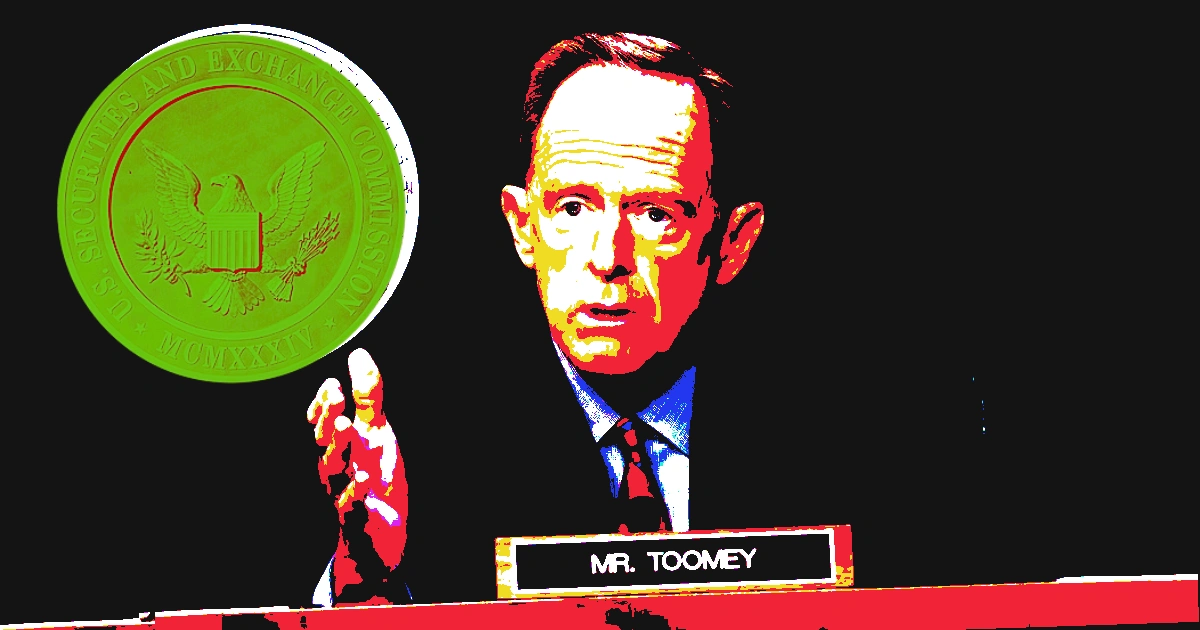Navigating the Frontier: Pat Toomey and the Advancement of Crypto Regulation in the U.S.
The cryptocurrency world stands on the cusp of a significant transformation as a major crypto regulation bill edges closer to a Senate vote. This pivotal moment has former U.S. Senator Pat Toomey, now a member of Coinbase’s Global Advisory Council, at the forefront advocating for sensible regulation to foster innovation while providing clarity and security in the digital asset space. This report delves into the evolving legislative landscape shaped by Toomey, exploring the implications of impending regulatory changes for the U.S. crypto market and the wider global context.
—
The Role of Pat Toomey in Crypto Legislation
Pat Toomey’s journey from senator to crypto advisor intertwines with his ongoing efforts to establish a coherent regulatory framework for cryptocurrencies in the United States. His involvement is multifaceted:
– Legislative Advocacy: Toomey has championed bills aiming to provide regulatory certainty, notably the Stablecoin TRUST Act, introduced in late 2022, which proposes federal and state frameworks for stablecoins. He emphasizes competition-fostering regulation that does not entrench large incumbents, seeking balanced rules that protect consumers without stifling innovation.
– Amendment Proposals and Bipartisan Collaboration: His attempts to amend broader legislation, such as the infrastructure bill, aimed to redefine “brokers” in the crypto context, striving to exempt software developers and validators from onerous tax-reporting requirements. These moves reflect his commitment to protecting emerging blockchain technologies and stakeholders from burdensome regulations.
– Bipartisan Outreach: Toomey has worked alongside Senators Ron Wyden (D-Ore.) and Cynthia Lummis (R-Wyo.) to broker compromises, underscoring a bipartisan approach essential for sustainable crypto regulation. Despite some setbacks, such as the rejection of certain crypto tax amendments, his effort has persisted in pressing for actionable legislation.
—
The Impending Crypto Regulation Bill: Stakes and Expectations
The near passage of this major crypto regulation bill signals a potential turning point for U.S. leadership in the blockchain sphere. Several key elements frame its significance:
– Controlling the Regulatory Environment: Toomey stresses that without “passing sensible” regulation, the U.S. risks losing dominance in the global crypto race. Clear rules are anticipated to reduce uncertainty that currently hampers broader institutional adoption and innovation.
– Broader Senate Support and Challenges: The legislation has attracted both Republican and Democratic advocates, reflecting growing recognition of crypto’s importance. However, the path to enactment is not assured; failure to secure the requisite 60 votes and fluctuating support illustrate political sensitivities in crypto tax reporting and oversight.
– Focus on Key Areas like Stablecoins: There is particular attention on the regulatory treatment of stablecoins, given their outsized role in digital finance. Toomey’s Stablecoin TRUST Act and related proposals could lay foundational principles for safe and competitive issuance of these assets.
– Legislative Timing and Momentum: With the 2025 legislative session underway, momentum to modernize the regulatory landscape has intensified, partly spurred by high-profile crypto collapses and market volatility, which have underscored the need for clearer consumer protections and market integrity.
—
Broader Implications for U.S. Crypto Adoption and Global Positioning
The evolving framework influenced by Toomey’s leadership holds several broader consequences:
– Investor and Developer Confidence: A transparent, fair regulatory regime is expected to encourage greater participation by institutional investors and blockchain developers who currently face regulatory ambiguity.
– Global Competition: Other regions have been quicker to enact crypto-friendly laws. The U.S. seeks to catch up and lead, balancing innovation with safeguards. Without timely and thoughtful legislation, it risks ceding ground to more crypto-progressive jurisdictions.
– Market Dynamics and Innovation: Regulations that avoid favoring entrenched incumbents are crucial to maintaining a dynamic and innovative market ecosystem. Toomey’s stated intention to promote competition aligns with fostering technological advancements.
– Tax Compliance Clarity: Resolving how crypto participants, especially brokers and validators, fit within tax frameworks will alleviate one of the major sources of regulatory confusion, helping market participants navigate compliance without undue punishment or complexity.
—
Challenges and Continuing Debates
Despite progress, some persistent challenges remain:
– Complexity of Crypto Definitions in Law: Establishing precise definitions of crypto participants and activities is difficult given the technology’s rapid evolution. Amendments defining “broker” and other roles have sparked debate, reflecting the nuanced nature of blockchain operations.
– Balancing Innovation with Protection: Regulators strive to protect consumers from fraud and systemic risks without imposing burdensome rules that throttle innovation and competitiveness.
– Political Fluctuations: Legislative support for crypto rules can shift, as seen in prior blocked amendments and failed votes, requiring constant negotiation.
– Stablecoin Oversight: Stablecoin regulation remains contentious, with concerns about financial stability and issuer risks driving calls for federal frameworks, which must be designed carefully.
—
Conclusion: Shaping the Future of Crypto Regulation with Toomey’s Vision
The imminent Senate vote on a major crypto regulation bill, with Pat Toomey playing a pivotal role, represents a critical crossroads for the U.S. crypto ecosystem. It could herald a regulatory era that clarifies uncertainty, encourages innovation, and positions America as a global leader in digital assets. Toomey’s vision emphasizes sensible, competition-friendly regulation that reconciles the need for oversight with the unlocking of blockchain technology’s full potential.
This juncture is not just legislative—it reflects a broader ambition to harness crypto’s transformative possibilities responsibly. As the bill advances, the U.S. crypto community, investors, and innovators watch closely, recognizing that the outcome may well chart the course of cryptocurrency’s future domestically and globally.





